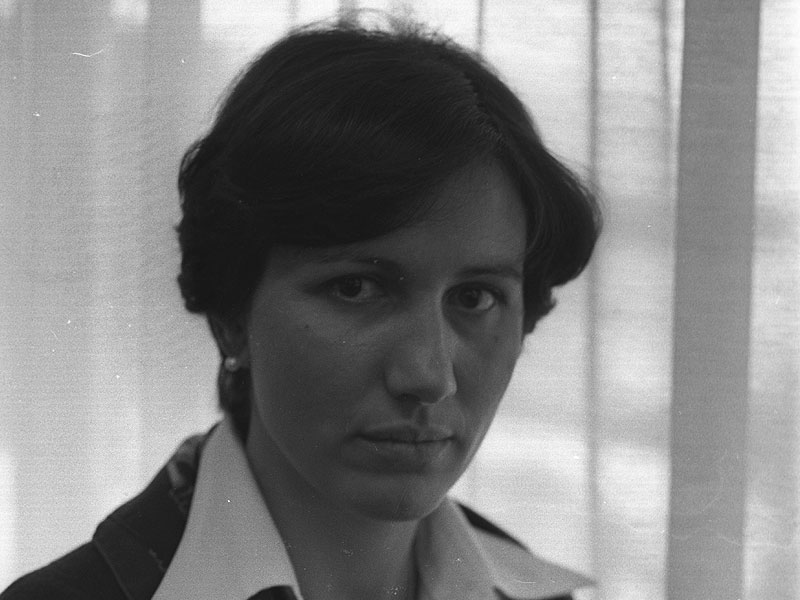History of the School
-
1954
School of Nursing
The School of Nurses of the Estudio General de Navarra was born in 1954. Classes began at the conference room conference room of the high school de Higiene (C/ Leyre), a place given by its director, Dr. José Viñes, after a agreement with the Diputación.
The first management team of the School was formed by María Casal, the first director; María Jesús Domingo, head nurse; and Mariví Tabernero, administrative assistant. They were joined by Sagrario Aguinaga.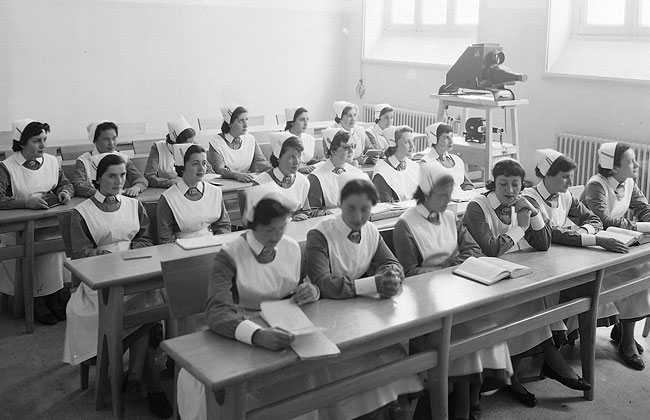
-
1954
First promotion
In order to get female students, a advertisement was placed in the newspaper to announce that programs of study for Female Health Technical Assistants was starting at the Estudio General de Navarra. Twelve enrollments were expected that first year, and they doubled: there were 24.
From the beginning, the nursing students were recognizable by their uniform. design by Flora Villarreal, a prominent Madrid dressmaker, was tobacco-colored (and not white, as was customary). The stripes on the coif indicated the course of the students.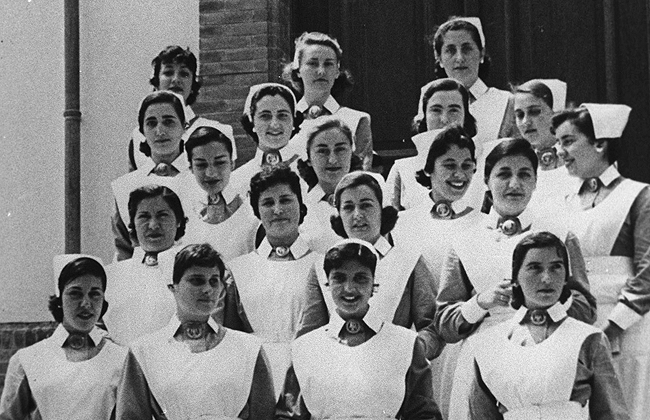
-
1955
"Old School".
Soon it was necessary to have more resources: facilities and a place to practice from the first year. In 1955 the Nursing classes (like those of Medicine) were moved to the so-called "Old School", a pavilion that was in disuse inside the Hospital de Navarra.
To the first subjects, Anatomy Functional and General Pathology, were added General Biology, Human Histology, Microbiology and Parasitology and General Hygiene, thanks to the reinforcement provided by the incorporation of the Irish Eileen Maher and Angela Mouriz.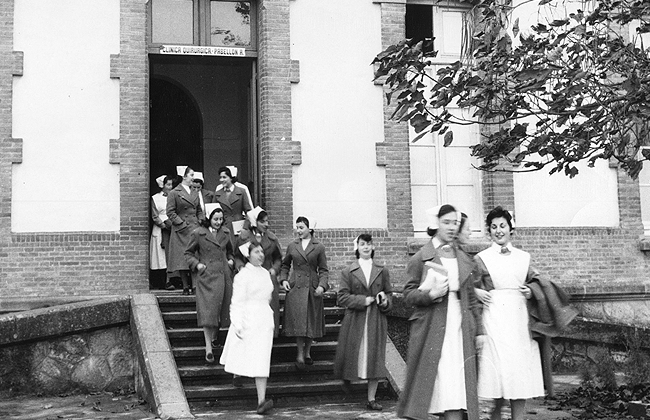
-
1958
"Escuela Nueva"
In 1958, doctors and nurses moved to the "Escuela Nueva", the first building of the future University.
The arrival that year of Dr. Eduardo Ortiz de Landázuri to Medicine was also a boost for the School.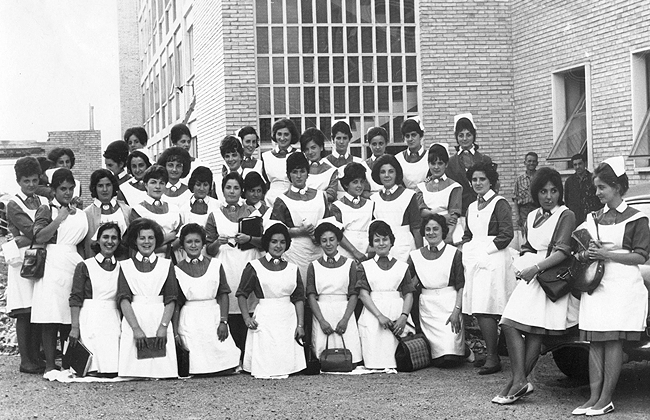
-
1960
Specialities
In 1960, the specialties in Nursing began with Midwifery. Later, Cardiology and Cardiovascular Surgery, Psychiatry, Physiotherapy, Orthopedic Surgery and Traumatology, Pediatrics, operating room, Intensive Care, Internal Medicine and Clinical Analysis.
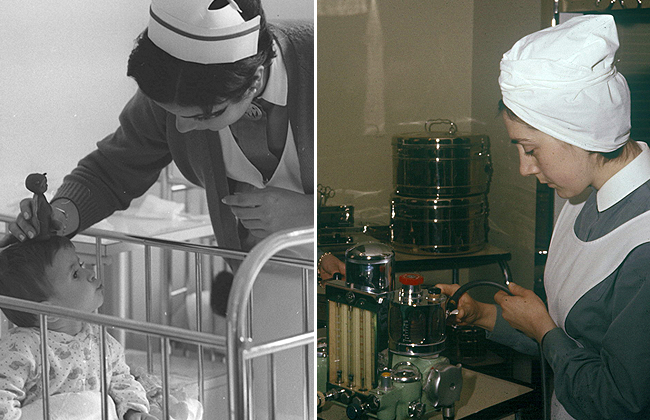
-
1961
First phase of the Clinic
In November 1961, the construction of the 1st phase of the Clínica Universidad de Navarra was completed. Nursing practices were then divided between this first phase, Pavilion F (transferred a few years earlier) and the general services of the Hospital de Navarra itself.
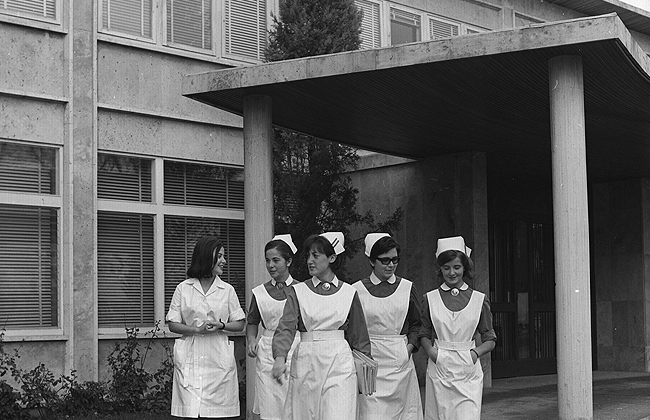
-
1968
Instructors
In 1968 the role of the instructor was created in the School: nurses who have studied a specialization program and with great experience; they are in charge of the teaching internship of the students, guiding them from the professional point of view and staff.
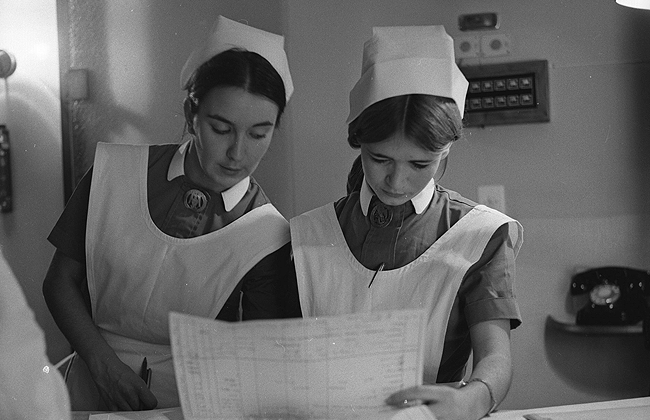
-
1974
Course for staff professor
Between November 29 and December 1, 1974, the I Course for staff professor of Nursing Schools was held at the University. A national meeting attended by more than 200 professionals from all over Spain.
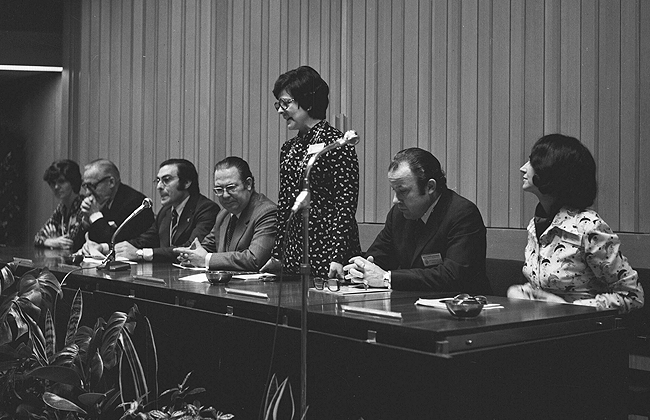
-
1977
University school
In 1977, the Schools of Nursing finally reached university status in Spain. The duration of the programs of study remained at 3 years, but a new Study program was approved with subjects more related to the degree program and more practical.
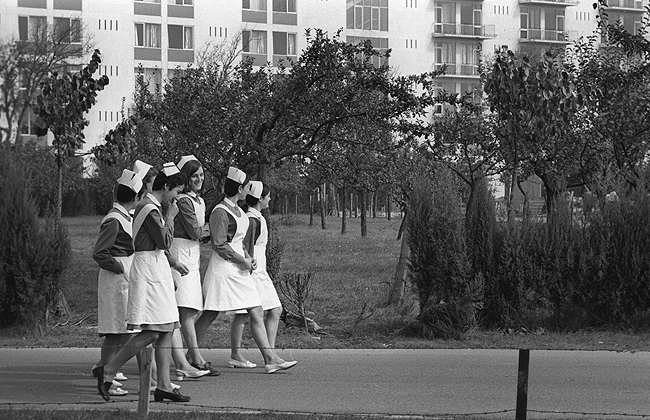
-
1989
First international agreement
In 1989 the School of Nursing signed the first agreement with the University of Edinburgh. The agreement allowed the realization of programs of study from doctorate, something that was not yet possible in Spain.
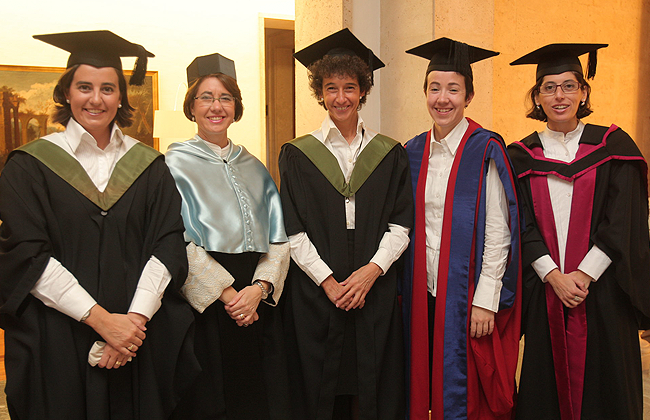
-
1995
Student Symposium
On March 10-11, 1995, the School organized the I Symposium for Nursing Students, which gathered 375 participants.
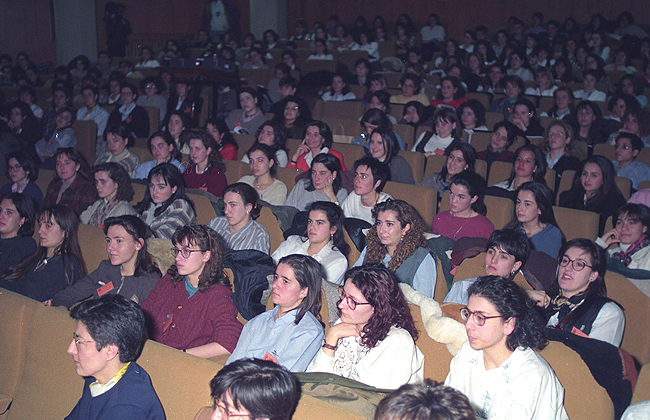
-
2002
Palliative Care
In 2002, subject Palliative Care began to be taught at the School.
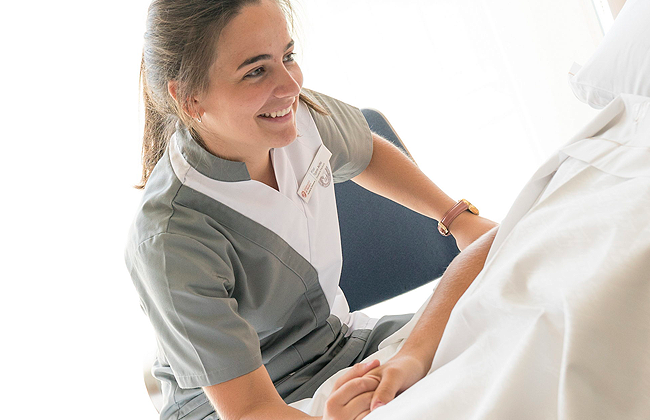
-
2004
First Doctor of Nursing
In March 2004 Amparo Zaragoza defended the first thesis in Nursing of the University. She did it in Glasgow (England) on the Nursing Care Process, becoming one of the first PhDs in this discipline in Spain.
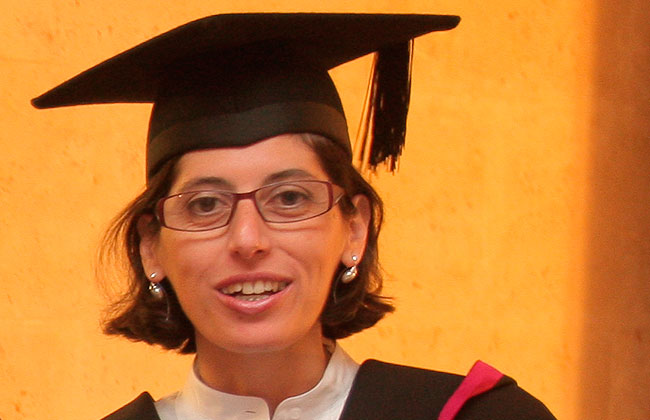
-
2007
María Egea Chair
In 2007, the Chair María Egea was created in Nursing with the aim of promoting the research in Nursing.
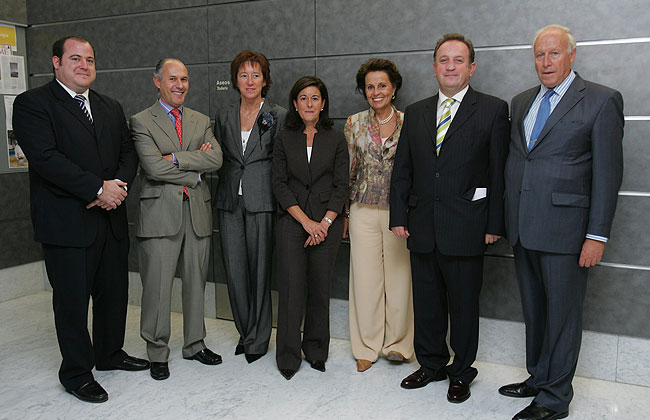
-
2007-2008
Master's Degree
In 2007-2008 he started the Master's Degree at Nursing Science; in 2010-2011 it changed its name to Master's Degree from research and internship Advanced Nursing; and in 2013-2014 it became Master's Degree at internship Advanced and management Nursing.
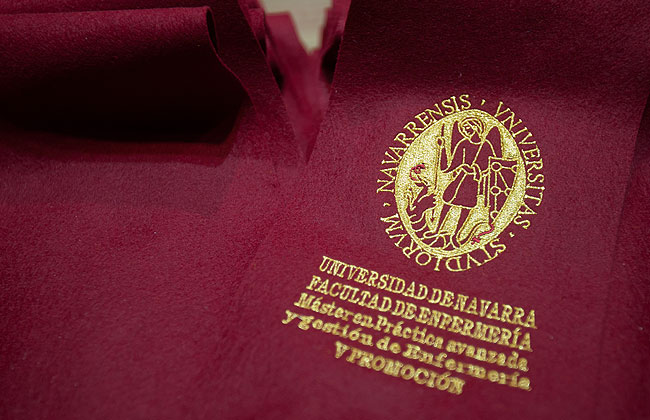
-
2009
Degree
In 2009 the diploma program was transformed into Degree, going from 3 to 4 courses. The programs of study of Nursing was equalized to the rest of the disciplines and it became possible to access programs of study from Master's Degree and doctorate. Mercedes Díez del Corral was the director of the School at that time.
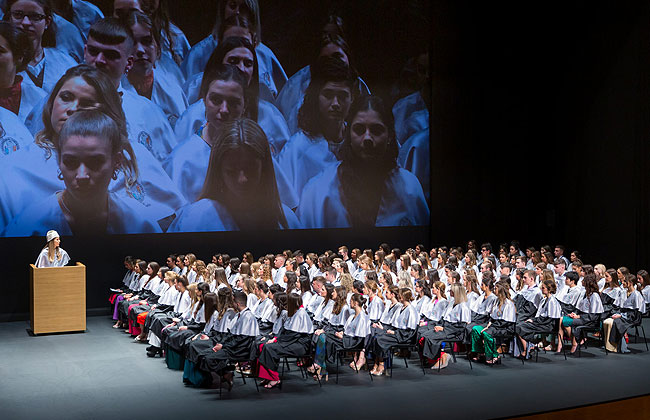
-
2010-2011
School
In the 2010-11 academic year, the Ministry of Education approved the change in the name of the School to School. The director became dean. The first was Mercedes Díez del Corral, who since 2011 has alternated at position with Maribel Saracíbar.
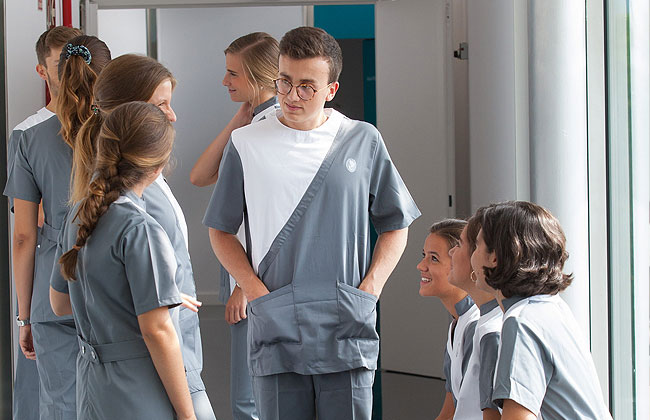
-
2011-2012
doctoral program
In the 2011-2012 academic year, the School launched the Master's Degree in Palliative Care.
That year, also, the first doctoral program was approved at Nursing Science. The first thesis began to be defended in 2015.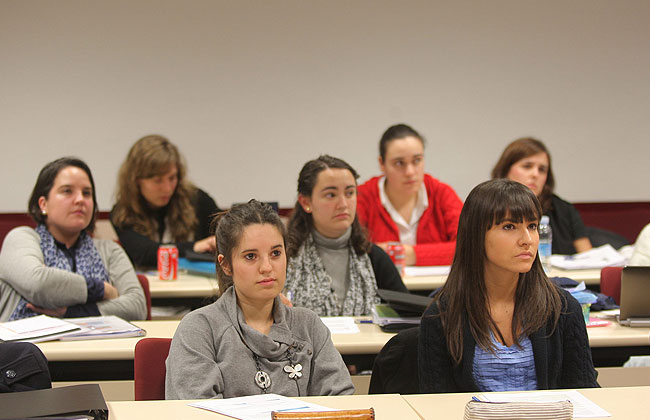
-
2013
"International Nursing Program
In 2013, the "International Nursing Program" was launched, a commitment to the internationalization of the School offering exchanges and internships during the summer.
Since 2014, the School also offers the summer course "Nursing Summer School".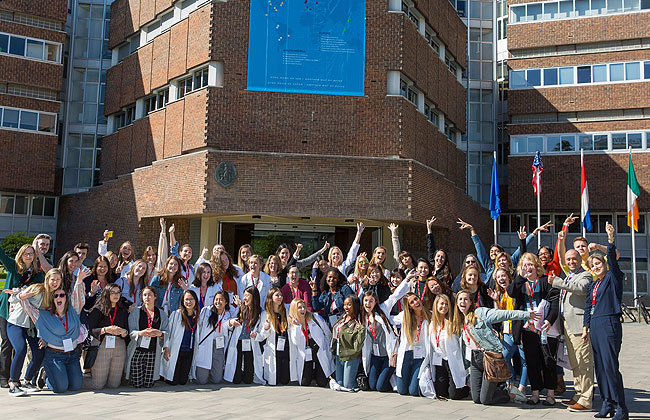
-
2016
Simulation Center
In 2016, the School inaugurated its Simulation Center, a commitment to High Fidelity Advanced Clinical Simulation as a complementary method of learning and assessment of students.
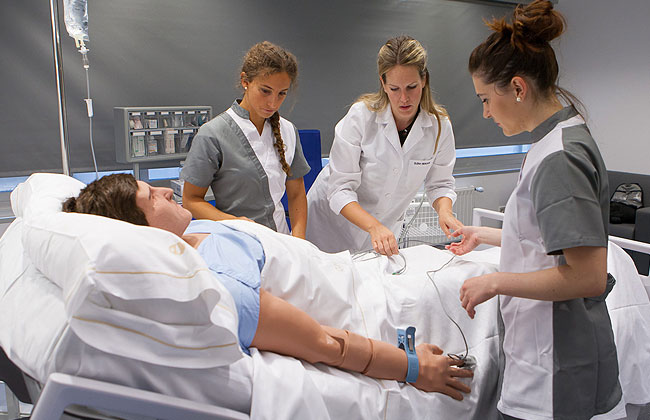
-
2022-2023
Oncology
This academic year 2022-23 has begun to be taught in the campus of Madrid of the University the Master's Degree in internship Advanced Nursing in Oncology. The first class has 20 students.
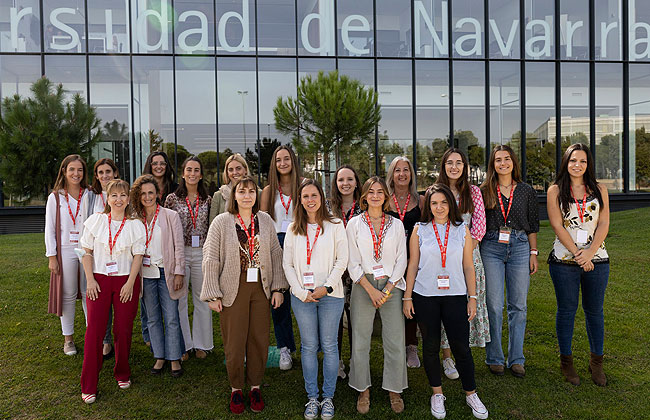
SOME OF THE PIONEERS OF THE SCHOOL
María Casal, María Jesús Domingo, Sagrario Aguinaga and Mariví Tabernero formed the first management team of the then School of Nurses of the Estudio General de Navarra. As soon as the first course began in 1954, a new reinforcement arrived: the Irish doctor Eileen Maher.
In the 60s and 70s other pioneers arrived at School , such as Obdulia Rodríguez, Carmen López de la source, Amelia Fontán, Rosario Serrano, Carmen Adalid, Pilar Herranz, Concepción Brun, Mary Navarro, Rosa Udobro, María Luisa Pueyo, Ana Irujo or Guadalupe Arribas.
issue In addition, a number of nurses from the Clínica Universidad de Navarra collaborated closely, in that first stage of the School, in the nursing practices and in the different specialties, such as Camino Erice (Internal Medicine), Conchita Hernández (Psychiatry), Ana Osés (Orthopedic Surgery and Traumatology), Ana Osés (Orthopedic Surgery and Traumatology), Carmen Asiain (Intensive Care), Blanca Beorlegui (operating room), Josefina Escós (Pediatrics), Araceli Oroz (Cardiology) or María José Zabala (Coronary Unit). Without this partnership, often disinterested, the Degree of preparation of the nurses of our School would not have been achieved.
* Click on the image to learn more about the pioneering women of the School
Maria Casal Wismer
María Casal Wismer was the first director of the then School of Nursing. In 1954, she was a young doctor, of Swiss origin, who was collaborating at the University of Barcelona with Mr. Juan Jiménez Vargas, first Dean of the School of Medicine, who proposed her to come to Pamplona.
She was director of the School until 1959.
She trained very directly the first promotions.
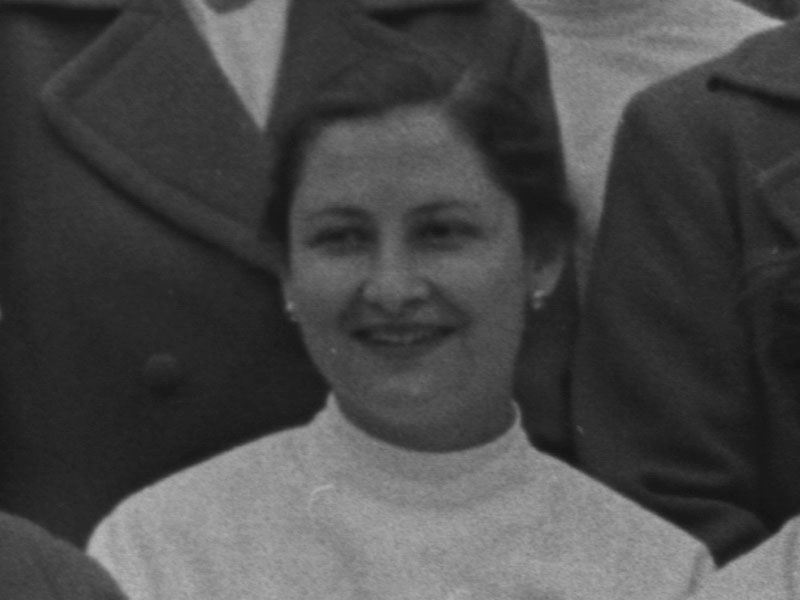
María Jesús Domingo
María Jesús Domingo, a native of Bilbao, had graduate nurse in Valladolid and had a long experience in the profession internship . She arrived in Pamplona, together with María Casal, in 1954 and was Head of programs of study of the incipient School.
She organized the internships for the students in different health care centers in Pamplona, mainly in the Hospital de Navarra.
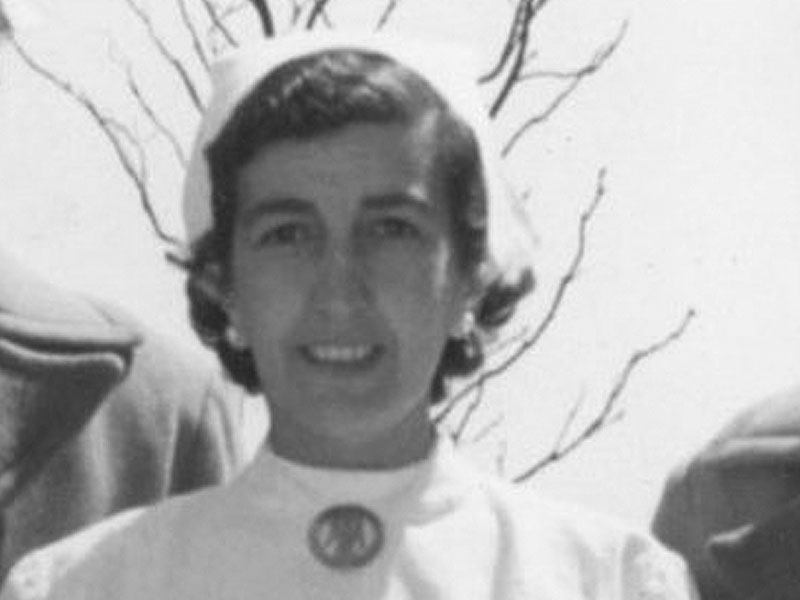
Mariví Tabernero
Mariví Tabernero was from Bilbao and had obtained the degree scroll nursing degree in Valladolid. She joined in 1954 as administrative assistant to the newly created School of Nurses.
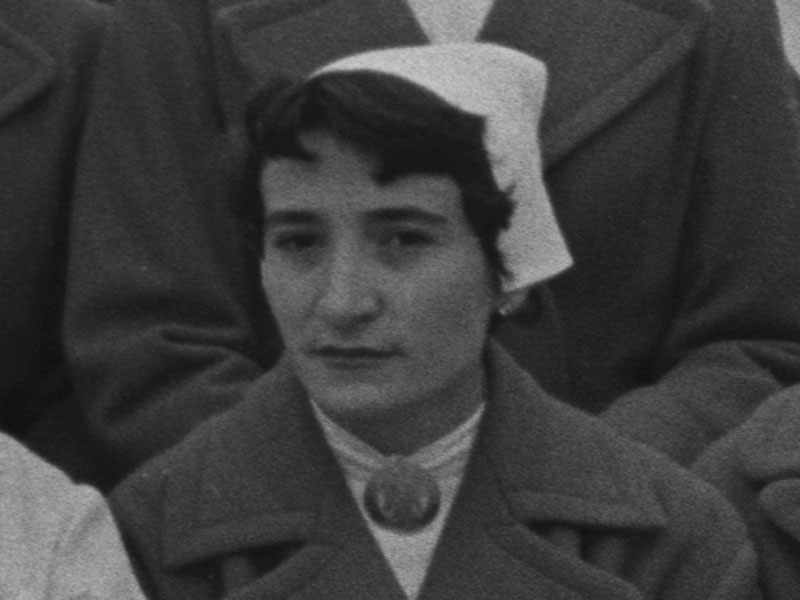
Sagrario Aguinaga
Sagrario Aguinaga, from Pamplona, was a Lady of the Red Cross, and later obtained the official degree scroll as a nurse at the School of Medicine in Zaragoza. Together with María Jesús Domingo, she closely followed the practices of the first promotions.
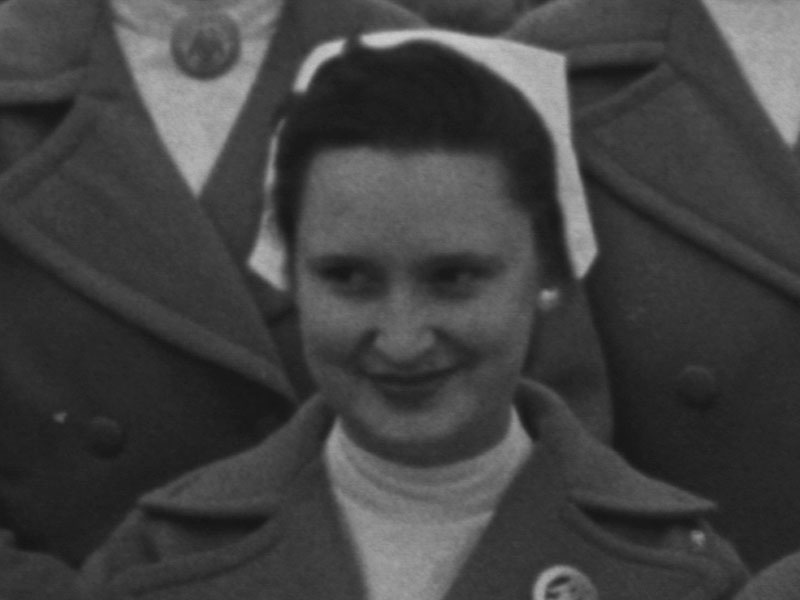
Eileen Maher
Irish physician Eileen Maher arrived at the School of Nursing as soon as she started her first year. Early graduating classes remember her effort at every class to speak in correct Spanish.
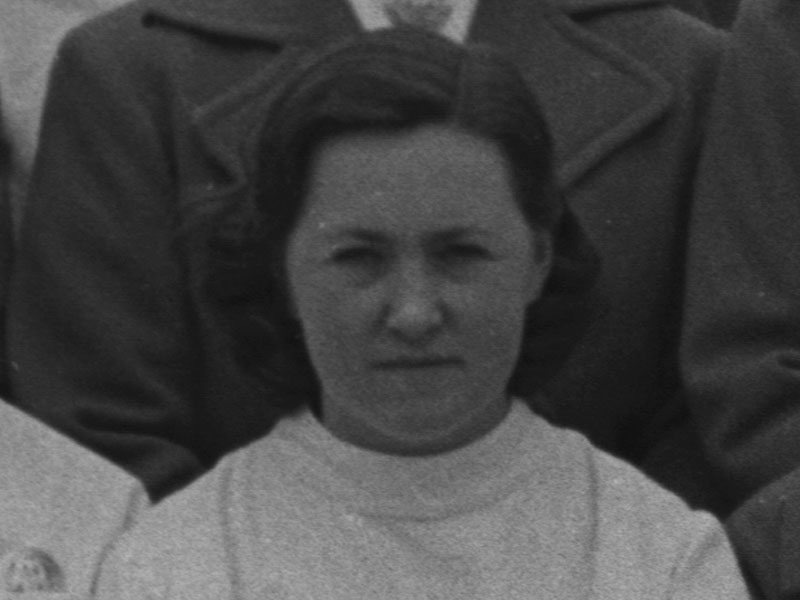
Obdulia Rodriguez
Obdulia Rodríguez replaced María Casal as Director of Nursing from 1959 to 1962. She was, therefore, director of the School at the time when the Estudio General de Navarra was named University of Navarra at plenary session of the Executive Council . She was Mexican and had specialized in Dermatology in the USA.
She was Mexican and had specialized in Dermatology in the USA.
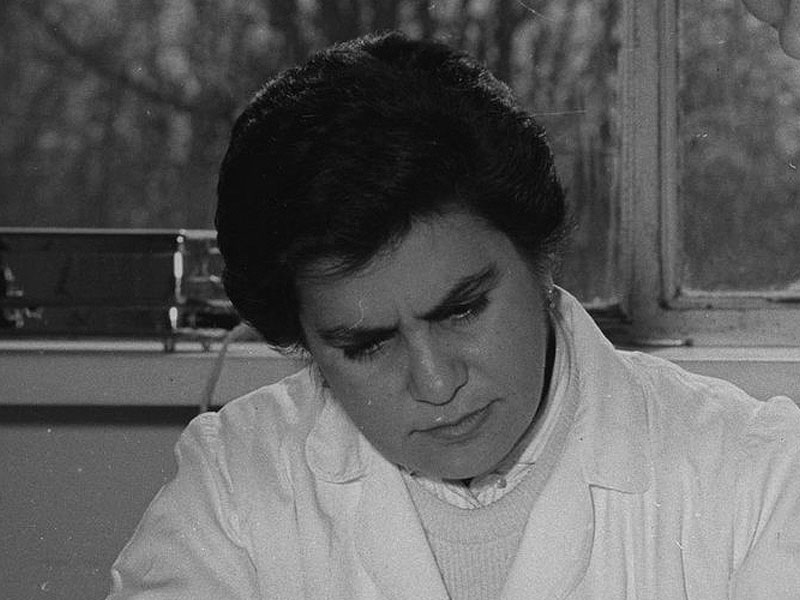
Carmen López de la source
He joined the School in 1958. She had done programs of study Nursing in the UK. She was director of programs of study and manager of Nursing in F Ward.
She was the first Director of Nursing at Clínica Universidad de Navarra, where she subsequently held other leadership positions. She received the University's Gold Medal in 1991.
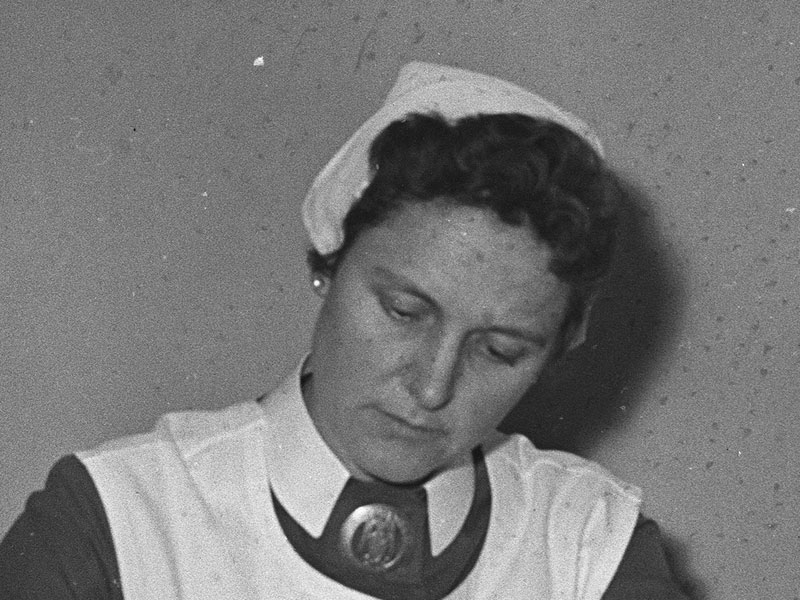
Amelia Fontán
Amelia Fontán studied Nursing in Granada and encouraged by D. Eduardo Ortiz de Landázuri joined the School in 1962 as director of programs of study (until 1972).
Being Dean of the School of Medicine, D. Eduardo entrusted her with the direction of the School in 1972. Subsequently, she combined this position with the direction of Nursing at Clínica Universidad de Navarra.
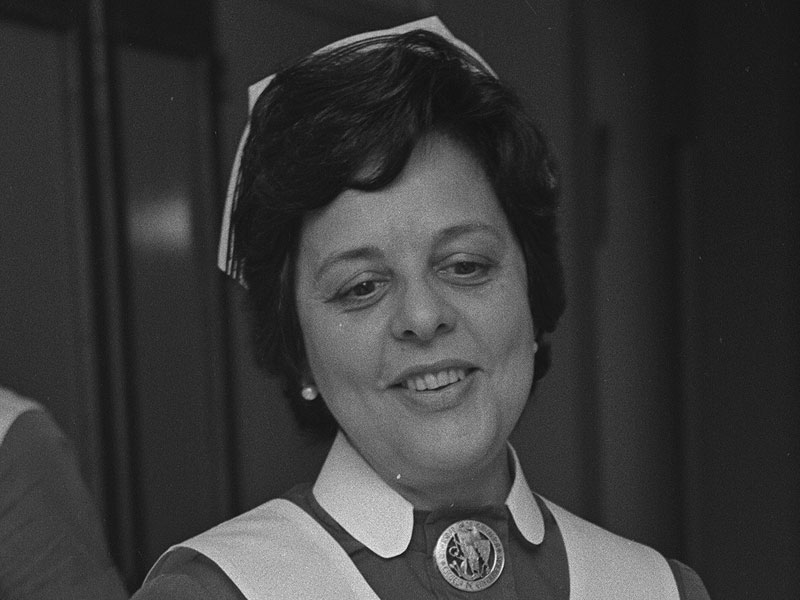
Rosario Serrano
Alumna of the X (1966). Rosario Serrano was a member of the board of directors of the School from 1967 to 1979; and of the board of directors of the Clínica Universidad de Navarra from 1979 to 1993. In 1993 she was appointed Director of the School.
In 1992 she was the first nurse at the School to obtain a higher degree scroll in Nursing, with a Master's Degree in Nursing Research from the University of Edinburgh.
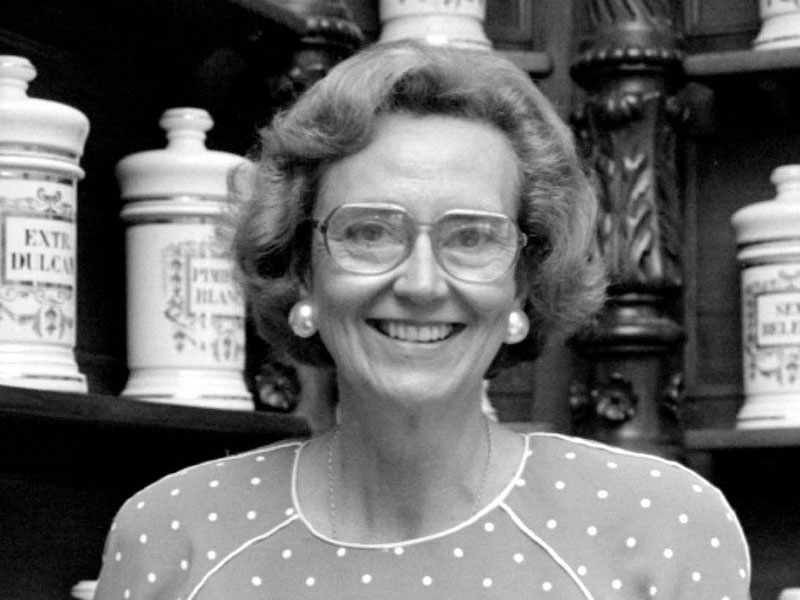
Carmen Adalid
Pediatrician Carmen Adalid was appointed director of the School of Nursing in 1962. She held the position at position until 1964 when she was replaced by Pilar Herranz.
Carmenchu, as she was known to everyone, became director for the second time in 1970, after a stay in Rome.
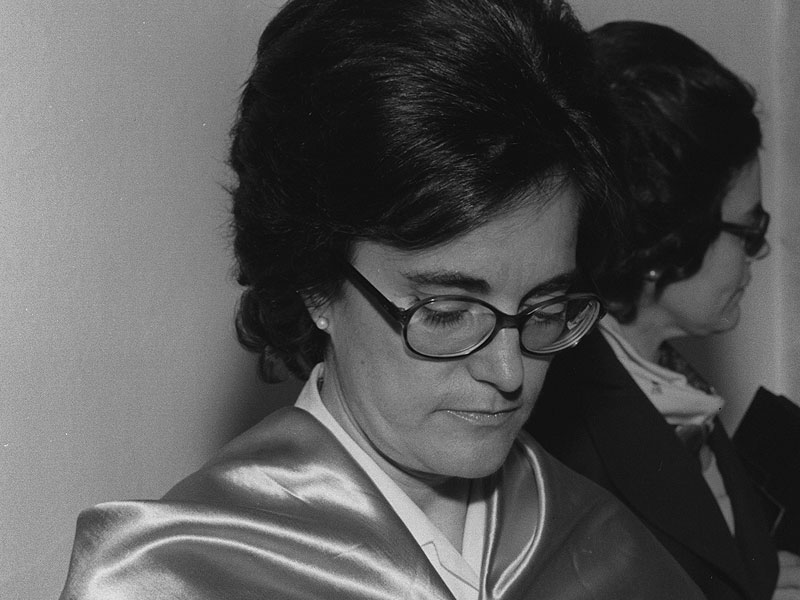
Pilar Herranz
In 1964 Pilar Herranz, a graduate in Medicine and specialist in Pathology Anatomy , was appointed director of the School.
Under her impulse, some nursing specialties were created at the Clinic.
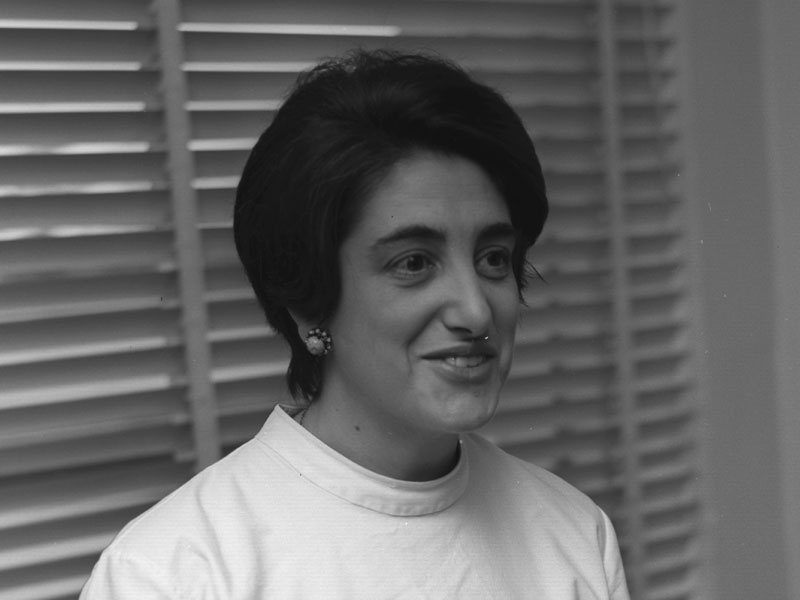
Concepción Brun
Concepción Brun studied nursing in Barcelona. She was administrative assistant academic of the School since the early 70s.
Through her position, she established contacts with other nursing schools in Spain, sharing with them the effort to create the diploma program de Enfermería.
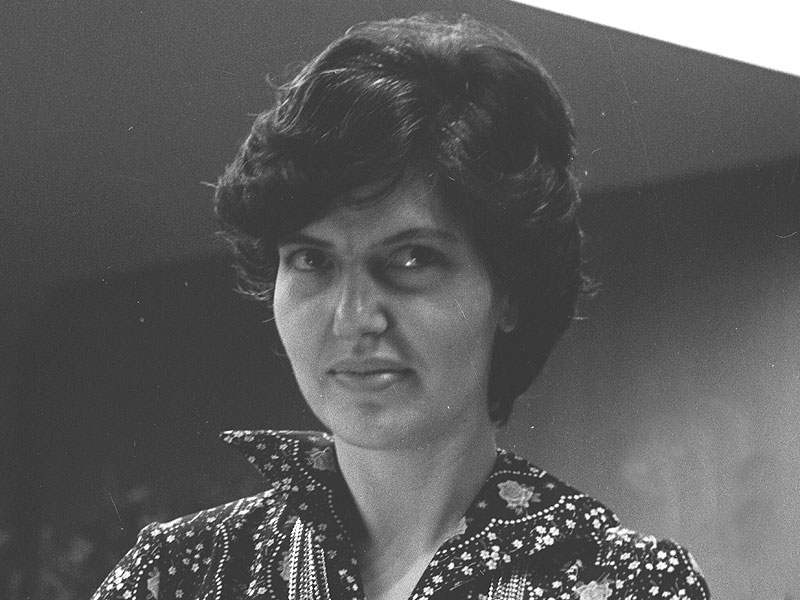
Mary Navarro
Alumna of the XIV Promotion (1970), Mary Navarro joined the School of Nursing at the end of her studies programs of study, as a Pediatrics practice teacher. Later she also took over the theoretical teaching of the subject. In short, she has been a professor of Pediatric Nursing for more than 40 years and has trained numerous promotions of nurses.
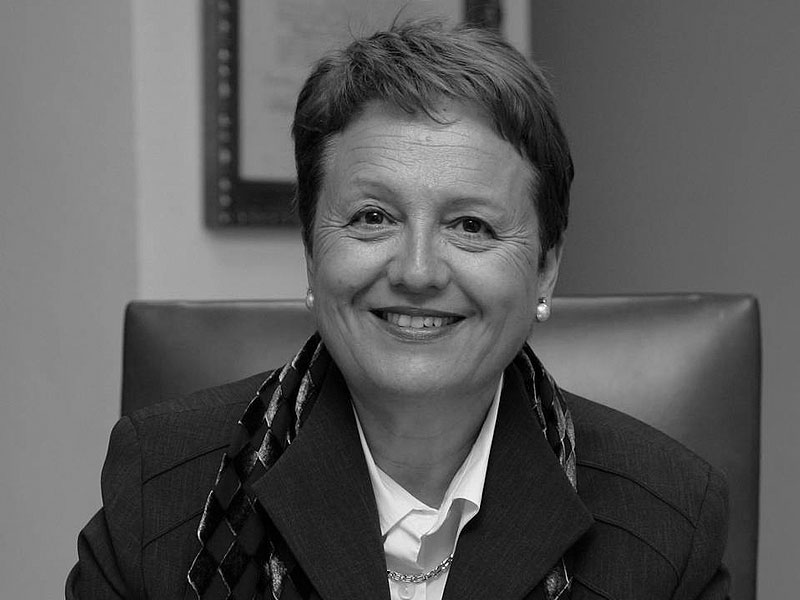
Rosa Udobro
Former student of the XII Promotion (1968), she had at position the practices of "Surgical Nursing".
Subsequently, she taught "Fundamental Nursing".
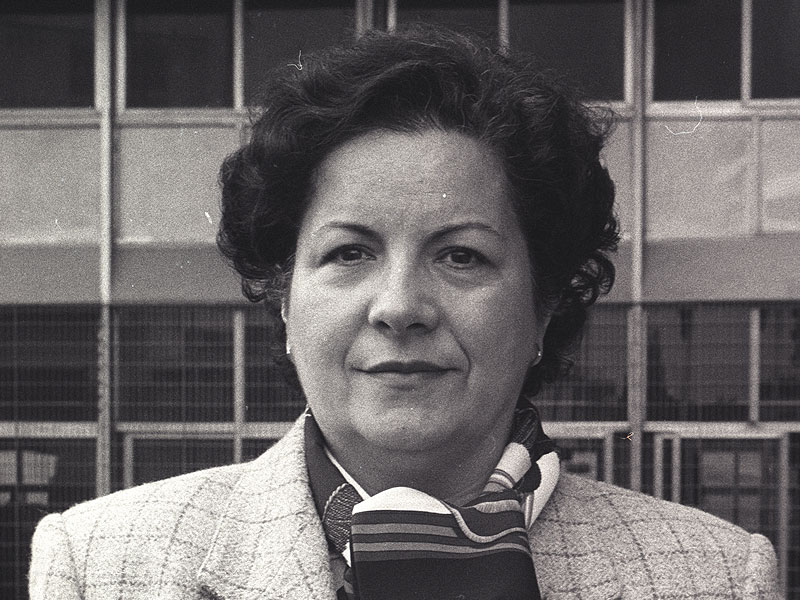
María Luisa Pueyo
Former student of the IX Promotion (1965). María Luisa Pueyo joined the School as an internship teacher of "Internal Medicine" until 1977.
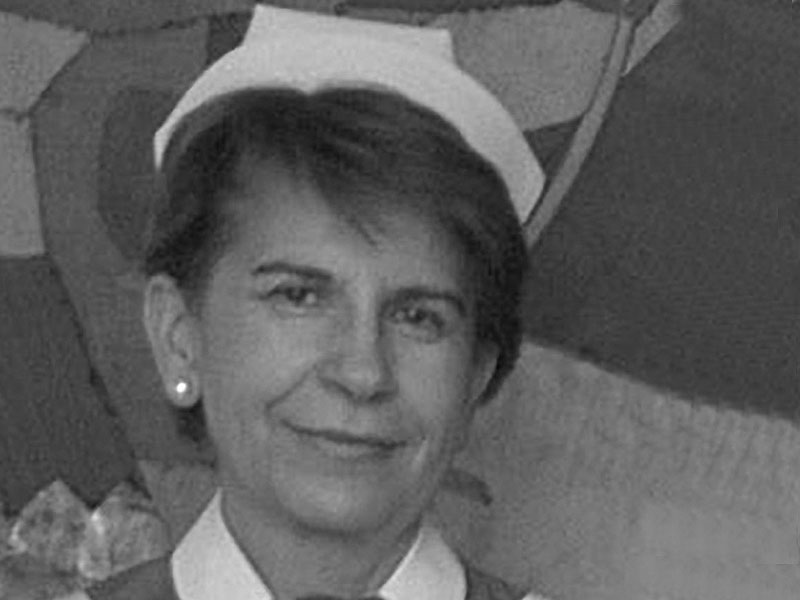
Ana Irujo
Former student of the XV Promotion (1971), she studied Physiotherapy at specialization program and thanks to that knowledge she became position of the subject of Anatomy, focused mainly on providing students with useful knowledge for the care of the sick.
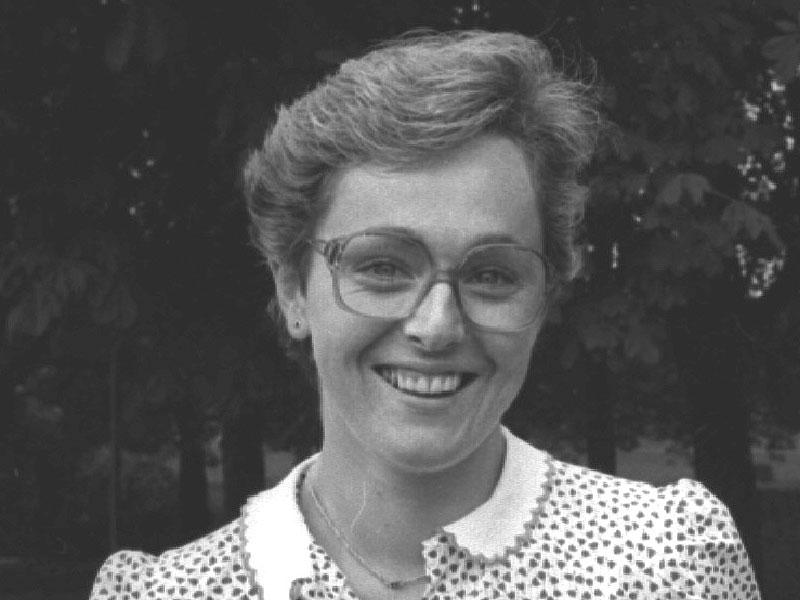
Guadalupe Arribas
Alumna of the VII Class (1963). She was a nurse at department of Genetics of the School of Sciences until 1977. From there she collaborated with the School in the practices of Genetics clinic of the students and had at her position several tutorials.
At the request of Amelia Fontán, in 1968 she started the contact with the former students of the School, which was later consolidated in the Graduate Section and later in the current Alumni.
